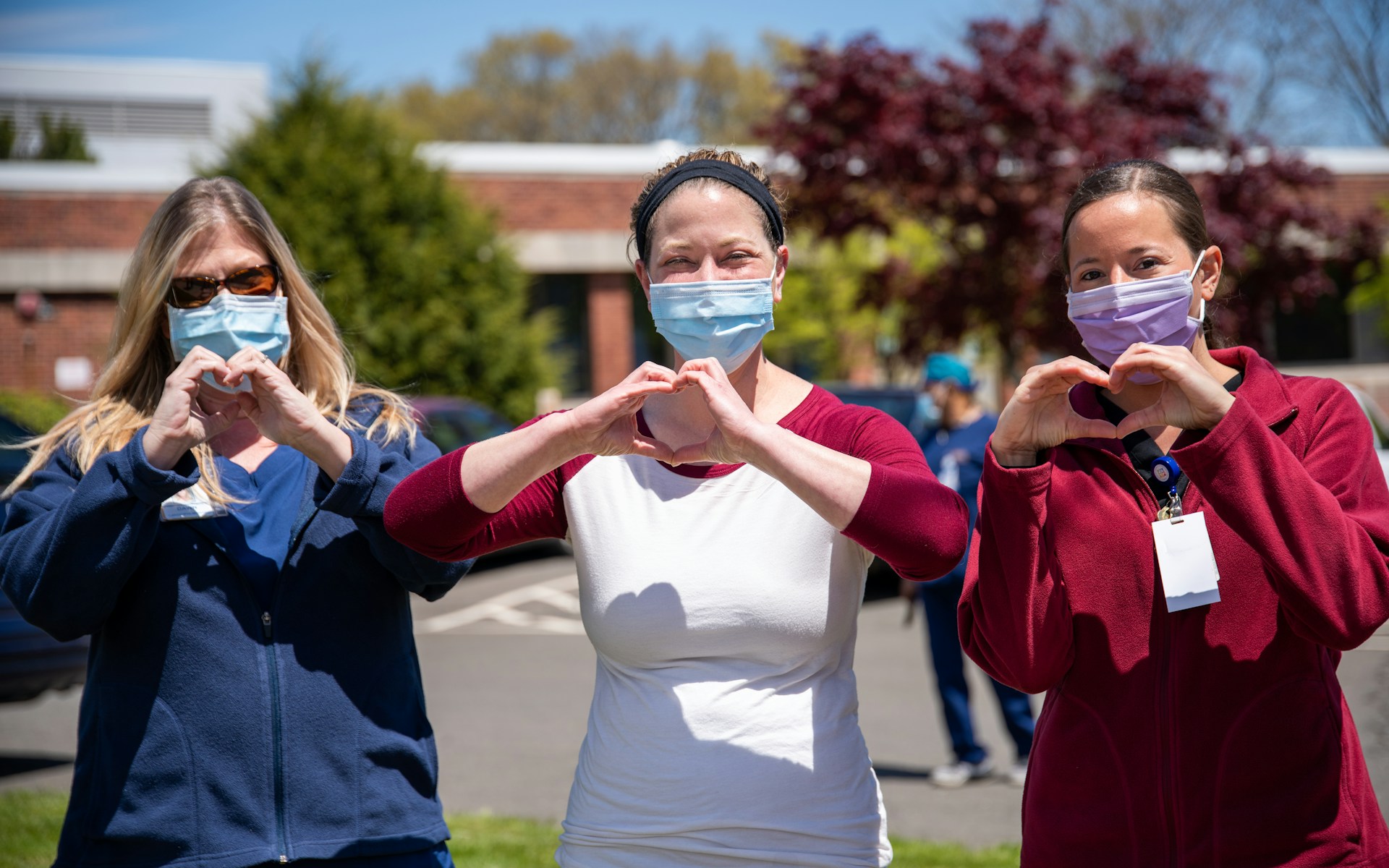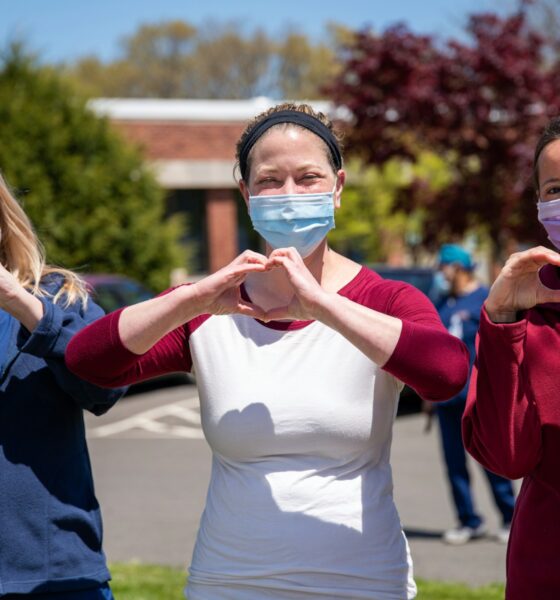There are a lot of ways people can be eco-friendlier in their lives. One way is to find a career focused on sustainability. Nursing can be a great one.
Nursing is an excellent career for people who are concerned about sustainability since healthcare institutions are beginning to adopt green practices into their operations. In fact, 87% of hospital CEOs report that hospitals incorporate sustainability into decision-making as well as day-to-day operations, demonstrating a high level of commitment towards reducing environmental impact. Nurses are at the forefront of these initiatives by promoting waste reduction, advocating for green medical practices, and ensuring that medical procedures are environmentally friendly. As contributors to a sustainable industry, nurses can contribute to a greener future while providing essential care to patients.
Apart from bringing about beneficial improvements in patient outcomes, hospital sustainability measures also come with huge cost reductions. The 269 hospitals that participated in the 2021 Environmental Excellence Awards collectively saved over $105.2 million in 2020 by implementing sustainable practices such as energy-efficient lighting, waste reduction programs, and eco-friendly medical supply alternatives. These savings not only benefit the hospital operation but make the healthcare system more financially stable. Besides this, working sustainability is becoming a significant workplace motivator in job satisfaction, since an IBM survey revealed that 71% of interviewees would prefer their employers to take environmental sustainability into account. For nurses who care about both patient care and the planet, being part of a healthcare system where sustainability is appreciated gives a fulfilling and meaningful career development.
Most nurses enter the profession because they want to do something good with their careers. Something important. There are lots of easier ways to earn a living. If you’ve chosen a career as a nurse, chances are you did it because you are passionate about helping people.
Of course, there are so many different things helping can involve. Are nurses working in a truly ethical and green environment? They can be great in a sustainable healthcare practice.
Naturally, the answer to this question won’t be the same for everyone. In this article, we take a look at how nursing can align with green and ethical living. We will also examine what you can do to ensure that your work aligns with your values.
The Green of It
Do nurses work in an environmentally conscious environment? That will depend on where they are working and what policies that healthcare system has in place. At its core, healthcare is not necessarily green. Hospitals use tons of energy—hundreds of rooms, staggering amounts of energy-consuming equipment, plus a staff full of workers who make long commutes into work every day. Now, very few people would say that hospitals don’t put their carbon to good use, but the concerns remain. It’s noble work, but not necessarily a green profession.
That doesn’t mean it can’t be. Nurses have the potential to advocate for hospital policies that will change practices and standards. Chances are pretty good that most are already interested in doing this anyway. Bringing your enthusiasm for eco-friendly work environments might only encourage them along with their efforts—particularly if you frame your input as a volunteer to help. “What can I do to make this hospital more eco-friendly?”
Naturally, an RN’s ability to influence policy will increase when they occupy leadership positions. There are graduate degrees out there that can help prepare you for administrative positions as a nurse.
At the highest level, nurses can work in the C-Suite as CNOs—Chief Nursing Officers. In addition to commanding a pretty sweet salary, your job as a CNO would allow you to significantly impact your healthcare facility’s green policies.
Is Nursing an Ethical Profession?
Of course. Nurses save lives every day. Simply by doing their jobs, they live the life of a hero. Nursing is ethical. That doesn’t mean the profession is without flaws. Healthcare, despite its importance, is harder to describe as strictly ethical. It’s up to nurses to be ethical, good components of a flawed machine.
That mostly means doing the very best job they can every day. In doing so, they will save lives, change lives, and have a huge impact on the health of their community. Every once in a while, however, the job may ask a little more of you.
Picking a Side
One of the harder components of the job—and one that you can’t necessarily prepare for in school—is navigating the different perspectives in healthcare. There are at least three sides to every healthcare scenario: what the patient wants, what the care providers think is best, and what the hospital wants. Rarely are all three perspectives in alignment. In some situations, there is a volatile fourth consideration: what the family wants.
This can get even trickier, particularly when the family and the patient are in disagreement.
In order, your core responsibilities are to your oath as a healthcare provider—namely, to provide the highest possible level of care to every patient.
This understanding of the work will clarify uncertainty much of the time. You view the situation as a healthcare professional seeking the best outcome, regardless of what the patient or hospital sees as the best route.
In other cases, there might be several viable paths. In that case, your secondary consideration is the patient. What do they want? How can you give them the highest possible level of autonomy?
This won’t mean that you are constantly at odds with the hospital. They are just as aware of this dynamic as you will be. It’s not that they will want you to produce subpar work. It’s simply that your emphasis might be on achieving the highest possible combination of good results and patient comfort.
The hospital’s position will be to achieve the best balance of good results and financial success. You will need to learn how to do your job well while keeping your patients as the primary consideration.
Advocate and Educate
When in doubt, these core responsibilities can serve as your north star. Never forget that the most important components of your job are to help people achieve the best possible healthcare outcomes and to intervene when that isn’t happening.
How better to do that than to advocate and educate? Ensure at every turn that your patients are getting what they need.
When you find ignorance or uncertainty at the community level, educate. Suggest programs or clinics that can improve the community’s understanding of certain problems, or simply connect patients with the resources they need.
Continuing Your Nursing Career
Keep in mind that working as an RN is just the first step in a long ladder for many people. If you are passionate about the job and want to explore doing it at a higher level, consider becoming an advanced practice nurse.
Working as a Nurse Practitioner will give you the chance to zero in on the parts of the job that you like the most.
It will also allow you to play a more influential role in shaping people’s health journey. Though becoming an NP will require you to get a graduate degree, many people who are passionate about the work find it worthwhile.
Conclusion
Nursing is one of the most popular second careers for a reason. Many people will start out looking for jobs that will earn them the most possible money. Eventually, they learn that great salaries often don’t correlate with great happiness. Folks gravitate toward nursing because it is meaningful, ethical work. It’s pretty simple: if you want to make a big difference in your community, this is easily one of the best ways to do it.


 Environment12 months ago
Environment12 months agoAre Polymer Banknotes: an Eco-Friendly Trend or a Groundswell?

 Features11 months ago
Features11 months agoEco-Friendly Cryptocurrencies: Sustainable Investment Choices

 Features12 months ago
Features12 months agoEco-Friendly Crypto Traders Must Find the Right Exchange

 Energy11 months ago
Energy11 months agoThe Growing Role of Solar Panels in Ireland’s Energy Future





















